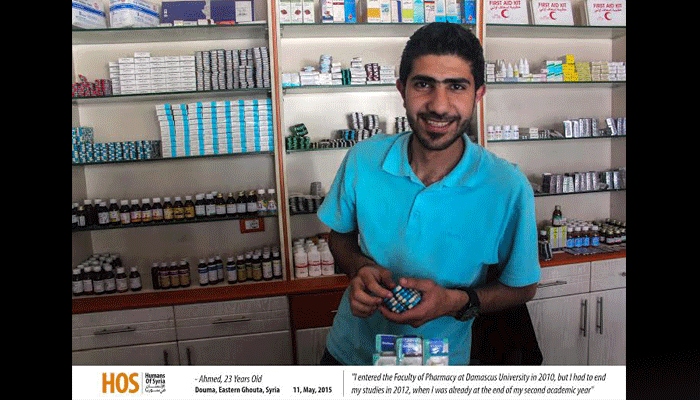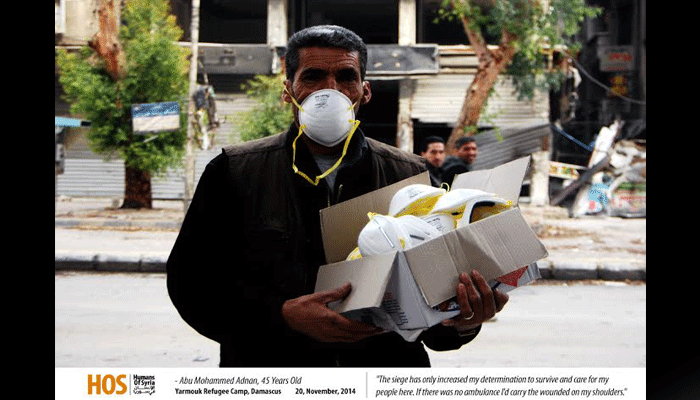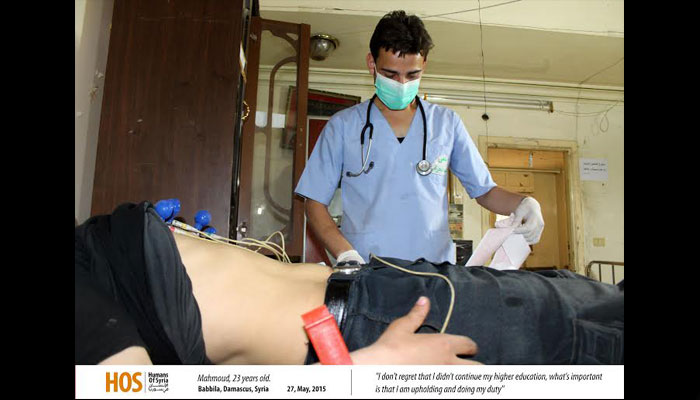After four years of war, Syrians have learnt the hard way, how to adapt to their harsh conditions. In areas where fighting is most severe everything becomes improvised. Residents live in makeshift homes, send their children to learn in makeshift schools and send their injured to be treated at makeshift hospitals; even by makeshift doctors. Everyone has to adapt, and everyone has to contribute wherever it's possible.
Mahmoud was in his third year of law school. He had already been arrested twice by Assad's security. When the southern countryside of Damascus became under siege, he found himself on the wrong side of the fence. A lack of medical professionals in the area pushed him to enrol in a first aid crash course. And with that he started his new career as a nurse and a first aid responder at the Bebbila clinic. "I have no regrets," he firmly declares.
Abu Yazan is another young man who was forced to adapt his profession to survive, and help others survive, the Syrian catastrophe. With a university background in chemistry, he joined the only field hospital still in service in the town of Darayya as a lab technician. He learned the ropes of his new job on-site, with help from remaining colleagues and his university days in chemistry. Today he conducts medical lab tests for the area residents despite the shortages and the ever grim conditions.
These young people are helped by the few doctors and medical professionals remaining in the area, without whom none of these could have had even the most basic training for the tasks they are asked to handle.

Ahmad, 23 years old, had only two years to study pharmaceuticals before he found himself forced to leave his studies and to take up the task of establishing a functioning pharmacy in the midst of the destruction in Douma. "No medicine comes in because of the siege so I can't stock up on anything" he says. So he spends much of his time going through the wreckage of other pharmacies and hospitals far and near, in an attempt to salvage some medicines for use later on.

Finally, perhaps the most important work among these is done by Abu Muhammad, the ambulance driver. Abu Muhammad Ambulance, as he is nicknamed in the area, is the only ambulance car driver in the Yarmouk camp. "If I wanted to leave the camp, I wouldn't have stayed from the start," he told us, "the siege is only making me more determined to stay help my people here." And then he adds: "If I don't have an ambulance, I will carry them on my back."
This post is published in collaboration with Humans of Syria, Radio SouriaLi and Souriatna newspaper.




